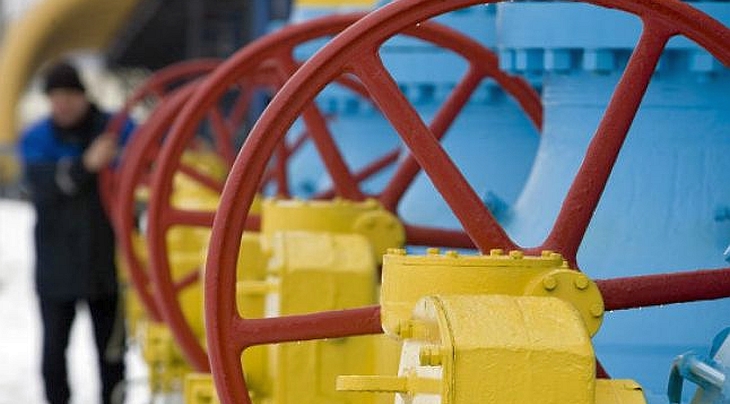Households and gas fired-heat plants and cogeneration plants that produce heat for households will continue to buy gas at the price of 53.30 lei/MWh from January to June 2015, according to a draft of Government Decision initiated by the Ministry of Energy, Small and Medium Enterprises and Business Environment, headlines Agerpres. From October 2014 the price should have increased to 54.6 lei/MWh, increasing suspended.
“[…] It is proposed to maintain the purchase price of natural gas from domestic production for domestic customers and manufacturers of heat, only for quantities of natural gas used in the production of heat destined to household consumption, produced in CHP plants and heating plants at a level of 53.30 lei/MWh for the period January-June 2015”, reads the accompanying note of the project.
The document also states that the Government will realize, at ANRE’s proposal, a new liberalization calendar for the period July 1, 2015 – June 30, 2021, which will take into account the downward trend of oil prices, and the longer period to phase out regulated prices to be agreed with international financial institutions.
In accordance with the law, natural gas producers are required to put with priority at the disposal of providers the amounts of internally produced gas needed to cover consumption of domestic customers, including amounts destined for heat producers under previously mentioned conditions.
Also, providers and non-household customers receiving these quantities have the obligation to respect the use of such quantities of natural gas. The rest of production, less the amount of natural gas used for own consumption by producers, will be made available to the competitive market.
By the end of the regulatory period, household customers and manufacturers of heat, only for quantities of natural gas used to produce heat in cogeneration plants and heating plants for household consumption, will receive the same treatment in terms of ensuring quantities and the sales price of natural gas consumed, whether they choose to be on the free or the regulated market.
From 1 January 2015, and January 1, 2016, respectively, to June 30, 2021 it will be applied a specific structure of mixing import and domestic natural gas intended for the consumption done by household and non-household customers, producers of heat, only for the quantities of gas used to produce heat in cogeneration plants and heating plants for domestic consumption.
ELCEN increased by 10.2% the rate for Gcal
Mayor of Bucharest, Sorin Oprescu, said on Tuesday that, on the Christmas Eve, RADET was notified by ELCEN (Electrocentrale Bucharest) that, starting 1st of January, 2015, Gcal rate will increase by 10.2%. The mayor says that the increase will not affect citizens as Bucharest municipality will cover the increase.
“On Christmas Eve, on 24 December 2014, a non-working day, RADET Bucharest received from SC Electrocentrale Bucharest SA (ELCEN) a notice related to the increase of production of thermal energy tariff from 1 January 2015. By ANRE decision no. 2827/17 from December 2014 the Gcal production cost is increased by 10.2%, this means an increase in the cost of production of thermal energy from 168.8 lei to 186 lei, VAT included”, said Sorin Oprescu.
The Mayor said that the City Hall was not consulted or even informed by ELCEN about this price increase, and RADET representatives announced that they haven’t requested an increase in the cost of transport and distribution of heat.
In 2014, in Bucharest, Gcal price was 341 lei, of which the population has paid 169.88 lei and the Bucharest City Hall subsidized 50% of the price, i.e. 171.18 lei. Thus, the subsidies last year were around 120 million euros. To cover this increase in tariff, the subsidy budget will be increased by more than 16 million euros, but only until the winter passes, and just for this year. Bucharest’s population consumes about 4.2 million Gcal per year.
“It’s a financial effort, due to restrictions imposed by the Ministry of Finance; it can no longer be supported. But this requires the organization and restructuring of RADET and to speed up the process of unification of the two institutions”, said Sorin Oprescu.
